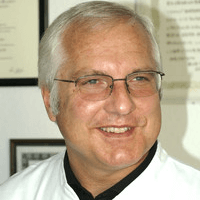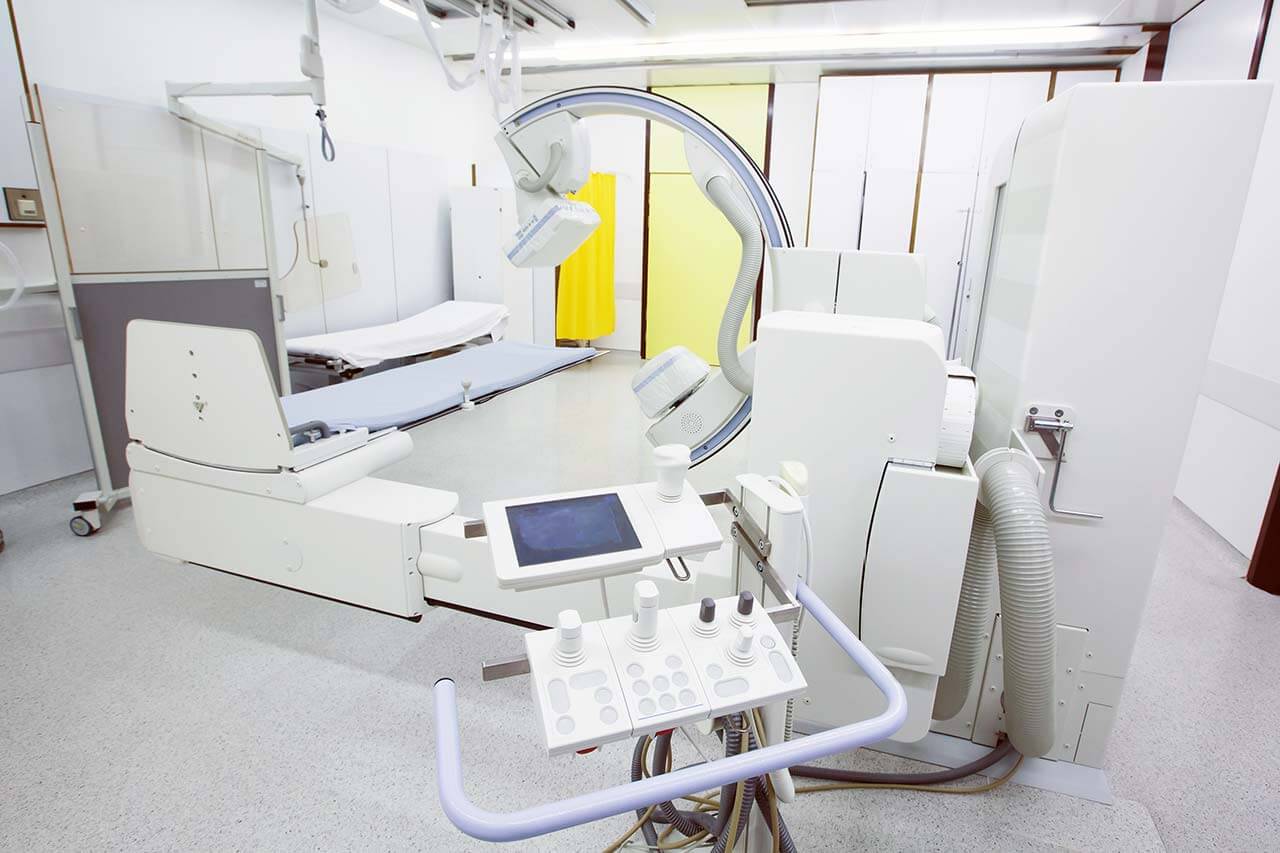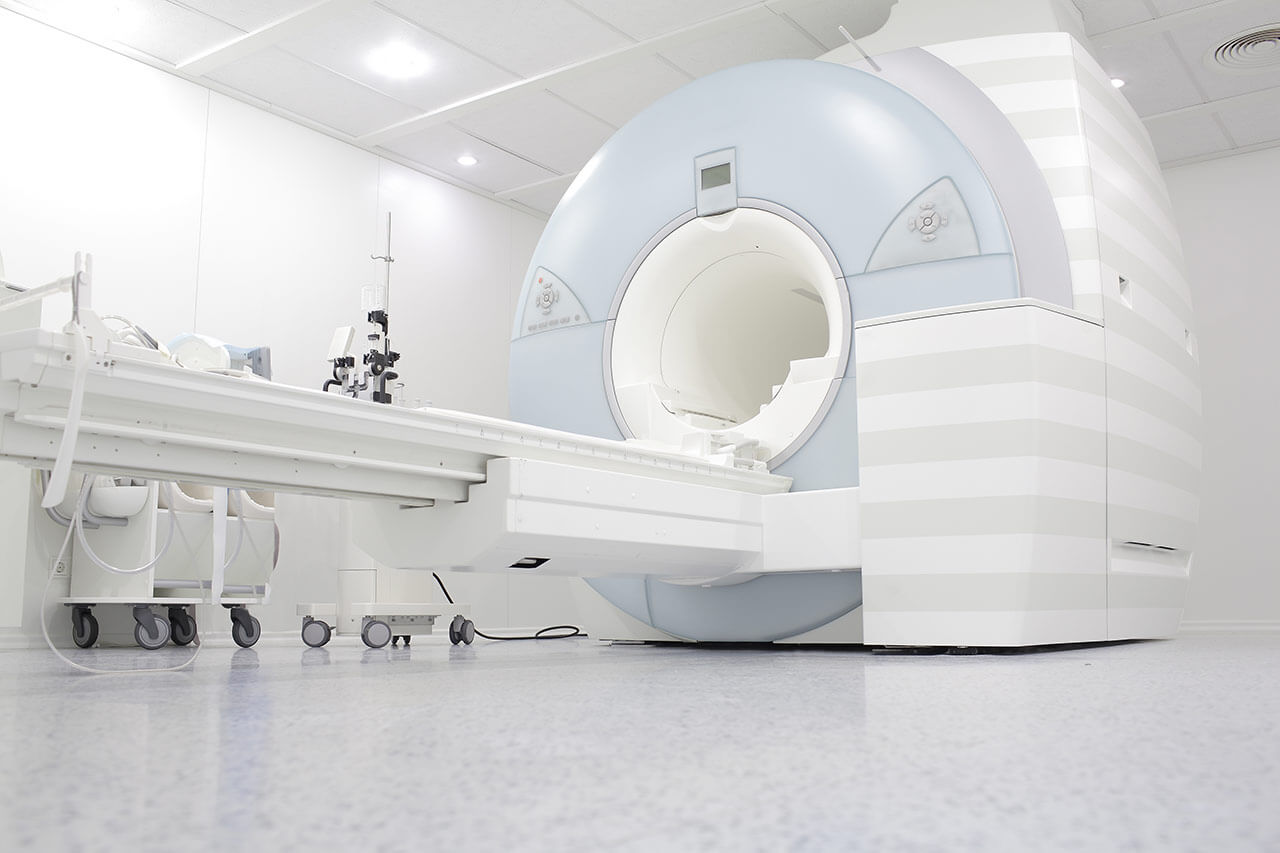
The program includes:
- Initial presentation in the clinic
- clinical history taking
- review of medical records
- physical examination
- laboratory tests:
- complete blood count
- biochemical analysis of blood
- inflammation indicators (CRP, ESR)
- immune status (IgE)
- differential diagnosis of other diseases of the skin
- skin scratch/prick tests
- consultation of related specialists
- symptomatic specific treatment
- the cost of essential medicines and materials
- nursing services
- control examinations
- full hospital accommodation
- developing of further guidance
Required documents
- Medical records
- Photo of the affected body regions
Service
You may also book:
 BookingHealth Price from:
BookingHealth Price from:
About the department
The Department of Adult and Pediatric Dermatology, Allergology and Phlebology at the Hannover Medical School offers the broadest possibilities for the diagnosis and treatment of skin diseases, allergic reactions, sexually transmitted diseases and varicose veins. Of particular interest is the therapy of inflammatory and infectious skin lesions, autoimmune diseases, skin manifestations of allergic reactions, and malignant skin neoplasms. All diagnostic and therapeutic procedures are performed in strict accordance with modern clinical protocols. The Chief Physician of the department is Prof. Dr. med. Alexander Kapp.
The department has the status of one of the largest specialized medical facilities of this kind in Germany. The department provides treatment to more than 2,800 inpatients, while about 17,000 more patients receive outpatient care. More than 8,800 patients are treated in a day hospital. The doctors of the medical institution admit adults and children of all age groups. If necessary, pediatricians and specialists from other medical disciplines are involved in the therapeutic process.
One of the key activities is both conservative and surgical treatment of skin tumors within the specialized center, which has been operating in the department since 2005. Thus, the patients receive medical care from highly specialized experts. They develop optimal treatment tactics for each clinical case in accordance with the current guidelines of professional societies (Working Group on Dermatological Oncology and German Cancer Society). Most often, dermatologists deal with the treatment of malignant melanoma, basal cell carcinoma, squamous cell carcinoma of the skin, lips and eyelids, angiosarcoma, Merkel cell carcinoma, dermatofibrosarcoma protuberans, and cutaneous lymphoma. The treatment of tumors involves the use of modern therapeutic techniques, including classical surgery, microsurgery, laser techniques, chemotherapy, photodynamic therapy, and others.
The structure of the department includes a Center for Rare Skin Diseases, in which experienced doctors consult and provide medical assistance to patients with such diagnoses. Also, the department's medical team is rightfully proud of its good success rates in the treatment of autoimmune skin diseases and occupational dermatoses.
The department's doctors have in their arsenal many effective provocation tests for the detection of allergies to food, drugs, insect venom, etc. To treat such allergic reactions, the doctors use special immunotherapy. In addition, the department performs tests to detect allergies to implants and dental materials, as well as tests to diagnose contact dermatitis.
The therapeutic options of the department are complemented by the treatment of varicose veins. Upon admission to the department, the doctor prescribes a complex of diagnostic tests for the patient, including color duplex sonography, digital photoplethysmography, and occlusive plethysmography. At the initial stages of varicose veins, the department's doctors use only conservative measures (lifestyle modification, drug treatment, compression therapy), and in difficult clinical situations they resort to more radical treatment methods, such as sclerotherapy and minimally invasive surgical interventions.
The department's key clinical focuses include:
- Diagnostics and treatment of skin tumors (conservative methods and surgical tumor removal with the best aesthetic result), as well as follow-up patient care after skin tumor treatment
- Diagnostics and treatment of allergic reactions using skin tests and modern laboratory diagnostic techniques (for example, Flow-CAST, CAST, lymphocyte transformation test, RAST test)
- Insect venom allergy
- Drug allergy
- Food allergy
- Hay fever
- Contact allergies, including occupational dermatitis
- Allergic reactions to implants and dental materials
- Individual diagnostics of light intolerance
- All types of urticaria
- Diagnostics and treatment of infectious skin diseases caused by fungi, bacteria and viruses (for example, shingles, herpes)
- Diagnostics and treatment of inflammatory skin diseases (for example, atopic dermatitis, psoriasis, lichen planus, acne)
- Diagnostics and treatment of autoimmune diseases (for example, systemic lupus erythematosus, systemic scleroderma, bullous dermatitis)
- Diagnostics and treatment of skin diseases in children
- Diagnostics and treatment of varicose veins
- Diagnostics and treatment of sexually transmitted diseases
- Other medical services
Curriculum vitae
Prof. Dr. med. Alexander Kapp is a Chief Physician of the Department of Adult and Pediatric Dermatology, Allergology and Phlebology at the Hannover Medical School. He is known for his work in the field of pathophysiology of inflammatory skin diseases (atopic dermatitis, psoriasis), his research on neuro-immunological interactions in allergic inflammation and on the role of eosinophilic granulocytes in allergy.
Education and Professional Career
From 1974 to 1980 Prof. Kapp studied Human Medicine at the University of Heidelberg, and in 1980 received his doctorate with his thesis on T-lymphocyte function in atopic dermatitis. He then spent research fellowships at the University of Heidelberg, the University of Freiburg, and the Max Planck Institute of Immunobiology in Freiburg. After the residency in Dermatology at the University of Freiburg, he had his board certification in Dermatology and Allergology in 1987. In 1988, he became Associate Professor for Dermatology and Venereology, and in 1990 – Head of the Section of Allergology and Immunological Diagnostics at the University Hospital Freiburg. Since 1994, he has held the position of Professor and Head of the Department of Adult and Pediatric Dermatology, Allergology and Phlebology at the Hannover Medical School.
Scientific Contribution
Prof. Kapp worked in the field of in vitro diagnostics of allergic diseases. However, his main research interest lies in the pathophysiology of inflammatory skin diseases, particularly atopic dermatitis and psoriasis. His main focus in allergy research is in the field of insect allergies and allergic rhinitis, particularly the specific immunotherapy of these diseases, as well as diagnostic and treatment of urticarial. Genetics, diagnostics and treatment of malignant skin tumours are also in the focus of his scientific work. Dr. Kapp participated in the development of national and European guidelines on allergy treatment. He was clinical investigator in various clinical studies, as well as study director of national and European clinical multicenter studies in the field of dermatology and allergology, as well as conductor and coordinator of various in vitro studies in the field of inflammation research and allergy.
Research Interests
- Chronic urticaria.
- Atopic dermatitis.
- Inflammatory skin diseases (psoriasis, lichen planus).
- AInsect bite allergy.
- Allergic rhinitis.
- Specific immunotherapy for atopic dermatitis and allergic rhinitis.
- In-vitro diagnostics of allergic reactions.
- Neuroimmunological reactions in allergic inflammation.
- The role of eosinophils in allergic inflammatory reactions.
Awards and Honors
- 1993 and 1996 Herbert Herxheimer Advancement Award of the German Society for Allergology and Clinical Immunology (DGAKI).
- 1999 Herbert Herxheimer Memorial Award of the German Society for Allergology and Clinical Immunology (DGAKI).
- 2013 Erich Fuchs Award of the Association of German Allergologists for extraordinary merits in the area of allergology, clinical immunology and dermatology.
Memberships in Professional Societies
- Working Group on Dermatological Research (ADF).
- German Society of Dermatology (DDG).
- Society for Dermopharmacy.
- European Society for Dermatological Research (ESDR).
- European Dermatology Forum (EDF).
- German Japan Society for Dermatology (GJSD).
- German Society for Allergology and Clinical Immunology (DGAKI).
- Collegium Internationale Allergologicum (CIA).
- Fellow of the American Academy of Allergy, Asthma and Immunology (AAAAI).
Photo of the doctor: (c) Medizinische Hochschule Hannover (MHH)
About hospital
The Hannover Medical School has the status of a leading German medical facility. The advanced medical technologies, highly qualified specialists, as well as productive research activities form a solid basis for top-class medical service of the world standard. The hospital is proud of its outstanding achievements in the treatment of cancer, diseases of the lung, heart, kidney, liver and metabolic disorders, as well as surgical diseases.
The medical facility diagnoses and treats more than 63,000 inpatients and about 470,000 outpatients annally. These indicators are growing steadily, which indicates the reputability and prestige of the hospital in the European medical arena.
For decades, the hospital has been a pioneer in transplantation medicine and is one of the leading centers of this specialization in the world. It performs about 400 transplantations of solid organs annually. Also, the hospital has performed over 130 bone marrow transplantations. In addition, the hospital ranks among the world leaders in cochlear implantation for the treatment of hearing loss.
Much attention is paid to interdisciplinary cooperation. Since 2016, the hospital has the largest certified Cancer Center in the Federal State of Lower Saxony, which provides comprehensive, multidisciplinary medical care in accordance with the standardized protocols of cancer societies.
The specialists of the hospital offer patients not only modern treatment of the highest quality, but also attentive care, sympathetic attitude to the patient's problems and understanding of his individual needs. Thus, the patient can be sure that his health is in the safe hands of highly qualified doctors.
Photo: (c) depositphotos
Accommodation in hospital
Patients rooms
The patients of the Hannover Medical School live in comfortable and cozy rooms. Each patent room has an ensuite bathroom with shower and toilet. A standard patient room includes an automatically adjustable bed with an orthopedic mattress, a bedside table, a wardrobe, a TV and a telephone. You can use TV, telephone and Internet using a special chip card, which can be purchased at self-service terminals or ordered at the service counter. The hospital allows the patients to use mobile phones, with the exception of intensive care units, some departments and diagnostic rooms.
If desired, the patient can stay in an enhanced-comfort room. Such rooms are distinguished by a more sophisticated design, and are additionally equipped with upholstered furniture, a safe for storing valuables and a mini fridge.
Meals and Menus
The patient and the accompanying person are offered delicious and balanced three meals a day. Breakfast and dinner are served buffet style and lunch can be chosen from three set menus. All dishes are prepared by professional chefs using the freshest ingredients available in the region.
If you are on a specific diet for some reason, you will be offered an individual menu. Please inform the medical staff about your dietary preferences prior to the treatment.
Further details
Standard rooms include:
Religion
There is a chapel on the territory of the hospital, where Christian and Catholic services are regularly held. The hospital provides a prayer room for followers of Islam, which is open for visits 24 hours a day.
Religious services can also be provided upon request.
Accompanying person
During an inpatient program, an accompanying person can stay with you in the patient room or in a hotel of your choice.
Hotel
During an outpatient program, you can stay in a hotel of your choice. The managers will help you choose the most suitable options.




